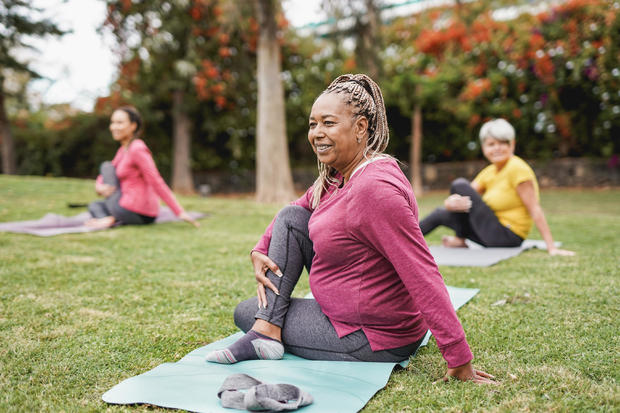Megan Edgelow is an assistant professor of health sciences at Queen’s University, Ontario.
The word “routine” can bring to mind words like mundane or ordinary. During the pandemic’s disruptions to daily life, routines may have felt boring and restrictive. However, as an occupational therapist and researcher of the impact of activity and participation on mental health, I know that routines can be powerful tools. They can support cognitive function, boost health and provide meaningful activities and social opportunities.
Early in the pandemic, researchers pointed to the value of daily routines to cope with change. As the two-year anniversary of the pandemic coincides with the relaxation of public health measures across the country, reflecting on routines and their value is useful when moving toward a “new normal.”
Routines support cognitive function
First, having a daily routine and regular habits supports cognitive function and may even free people up to be more creative. Research has found that having regular work processes allows workers to spend less cognitive energy on recurring tasks, which can support focus and creativity for more complex tasks.
Think of typical morning routines that existed before the pandemic: helping family members get on their way, taking a usual route to work, grabbing a warm beverage along the way, saying hello to coworkers, flipping on a computer or opening a calendar. Having habits like these can set the stage for a productive work day.
A review of the daily rituals of influential artists found that many artists have well-defined work routines which may support their creativity rather than constrain it. Memory research shows that regular routines and habits can support older adults to function better in their home environments.
If taking medications at the same time and putting the keys in their spot is part of a daily routine, less energy will be spent looking for lost objects and worrying about maintaining one’s health, freeing up time for other things people want to do in their day.
Routines promote health
Regular routines can also help people feel like they have control over their daily lives and that they can take positive steps in managing their health. For example, making time for exercise within routines can help meet recommended daily activity levels. This is especially relevant now, since research shows that people who reduced their activity levels during the pandemic could experience enduring health effects.
As people increase activity outside their homes, they might consider taking transit to school and work, returning to organized fitness activities and the gym and opportunities to include movement throughout the day. Other ways that routines can support health include regular meal preparation and getting enough sleep, activities that seem simple but can pay dividends in healthy aging over a lifetime.
Shutterstock
Routines provide meaning
Regular routines can also go beyond the streamlining of daily tasks and add some spice to life. Evidence indicates that a health-promoting activity like walking can offer chances to enjoy nature, explore new places and socialize.
Research on the concept of flow, a state of full absorption in the present moment, shows that activities like sports, games, fine arts and music can be fulfilling and reinforcing. Regular participation in meaningful and engaging activities can also contribute positively to mental health.
Small steps to build routines
If you think your daily routines could use a tune-up, consider some small steps:
- Use a day-timer or smartphone app to organize your activities and put the things you want to do in your schedule.
- Choose a regular time to wake up and to go to bed and try to stick to it most days of the week.
- Make physical activity manageable with neighborhood walks or bike rides a few times a week.
- Start a new hobby or re-engage in a past one, like playing sports or games, making arts and crafts, playing an instrument or singing.
- Keep an eye out for meaningful activities that may be popping back up in your community, like a book club at the library or a social walking group.
Routines have the power to help us manage our health and our work, home and community lives. Two years after the pandemic changed everyone’s lives, people now have an opportunity to consider the routines they want to keep and the meaningful things they need in their daily lives to stay productive, happy and healthy.
This article is republished from The Conversation under a Creative Commons license.

 Latest Breaking News Online News Portal
Latest Breaking News Online News Portal





